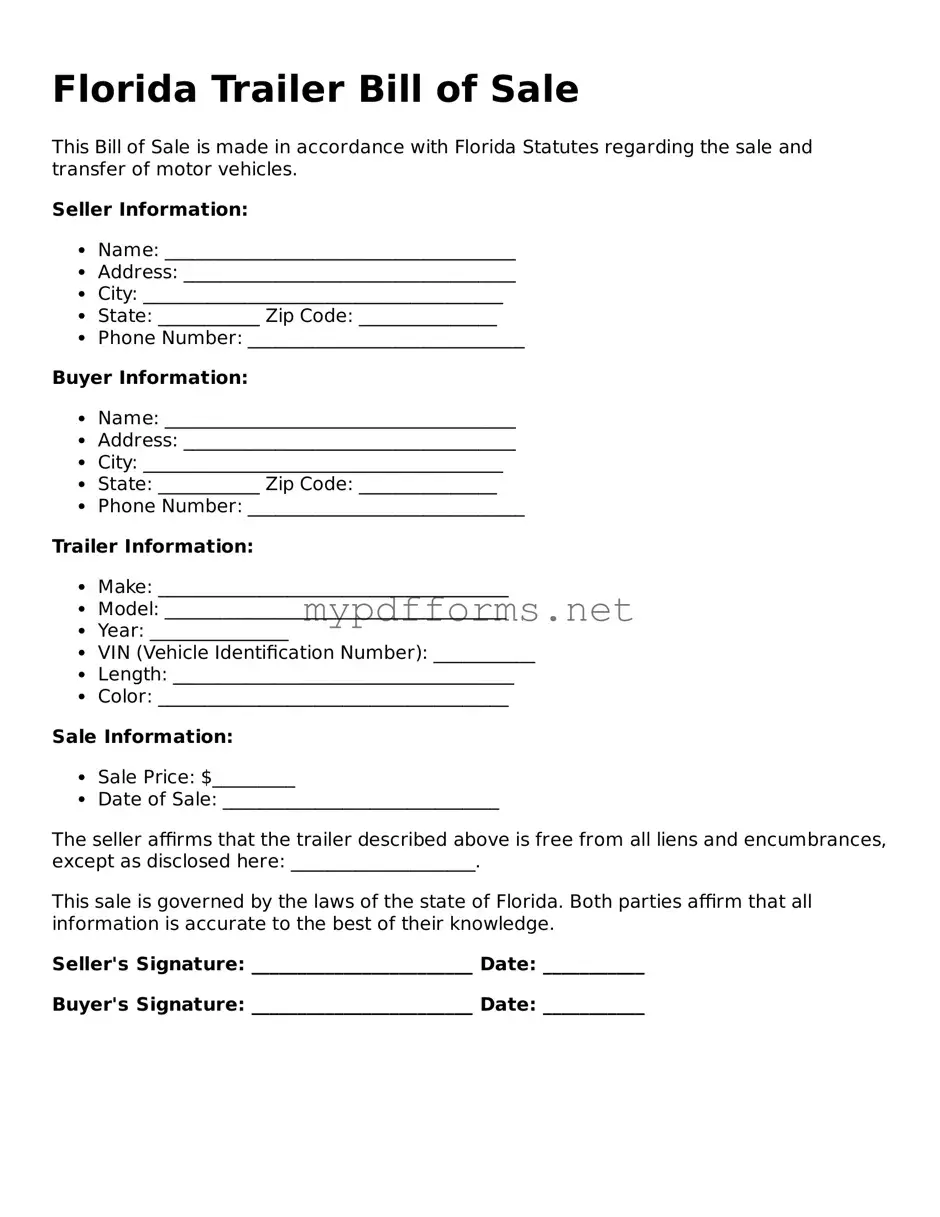Attorney-Verified Trailer Bill of Sale Document for Florida
The Florida Trailer Bill of Sale form is a legal document used to record the sale and transfer of ownership of a trailer in the state of Florida. This form provides essential details about the transaction, including the buyer, seller, and trailer specifics. Completing this form is crucial for ensuring a smooth transfer of ownership and protecting both parties involved in the sale.
To fill out the form, please click the button below.
Modify Document Here

Attorney-Verified Trailer Bill of Sale Document for Florida
Modify Document Here

Modify Document Here
or
⇓ PDF
Need to check this off quickly?
Edit and complete Trailer Bill of Sale online in just a few steps.